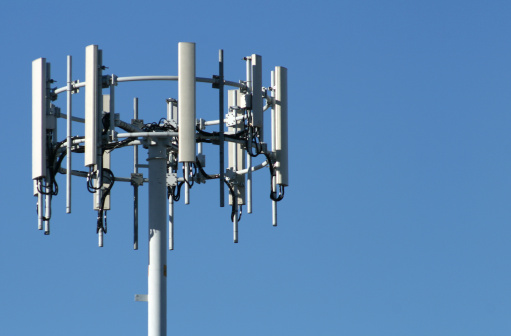AT&T or Verizon: Does Valuation Favor One or the Other?
February 7, 2014 by Paul Ausick
The biggest change would come if Sprint and T-Mobile merge. Instead of two major carriers and two smaller ones, the U.S. market would instead have three major carriers, each with around 100 million subscribers. AT&T has engaged T-Mobile in a price war, and whether or not the Sprint/T-Mobile deal gets done, AT&T needs to keep an eye on its own U.S. revenues. That is one reason the larger company has looked for opportunities to expand overseas and cut the subsidies it pays to subscribers. And Verizon, of course, will be trying to figure out how to pay the interest on what looks to be about $115 billion or so of long-term debt after it pays off Vodafone.
Looking at valuations, there seems to be little to choose from between the two leaders, but the choice may come down to one of market positioning.
AT&T Inc. (NYSE: T) shares rose about 5.5% in 2013, but over the trailing 12 months shares are down 9.9% and down 9% so far in 2014. That is not a very impressive showing for a company with a market cap of around $167 billion. The stock closed at $32.00 on Thursday, and the consensus analyst price target is $35.75, indicating a potential upside of nearly 12%. Shares have traded in a range of $31.74 to $39.00 over the past 12 months. With a fiscal year 2015 earnings per share estimate of $2.78, it is valued at about 11.5-times next year’s expected earnings. The company’s dividend yield of 5.7% forgives a lot of sins though.
Verizon Communications Inc. (NYSE: VZ) claims a market cap near $134 billion. The company’s stock outperformed AT&T in 2013, posting a share price gain of 14.5% for the year. Year to date, shares have lost about 5%, and the share price is down 4.75% over the past 12 months. The stock closed at $46.68 on Thursday, and the consensus analyst price target is $53.80, indicating a potential upside of nearly 15%. Shares have traded in a range of $44.11 to $54.31 over the past 12 months. With a fiscal year 2015 earnings per share estimate of $3.87, it is valued at about 12 times next year’s expected earnings. Verizon’s dividend yield is 4.6%.
T-Mobile US Inc. (NYSE: TMUS) came public in May of 2013 and shares are up about 79% since then. For 2014 so far, the stock price is down 12%. T-Mobile’s market cap is around $21.5 billion. The stock closed at $29.55 on Thursday, and the consensus analyst price target is $31.60, indicating a potential upside of about 6.8%. Shares have traded in a range of $16.01 to $34.10 since the company’s IPO. With a fiscal year 2015 earnings per share estimate of $0.51, it is valued at about 62 times next year’s expected earnings. T-Mobile does not pay a dividend.
Sprint Corp. (NYSE: S) stock is really a tracking stock for majority owner SoftBank. Since the deal closed in July, Sprint’s shares have gained about 25%. Year to date, though, the stock has dropped 24%. SoftBank/Sprint is expected to have a very difficult time convincing U.S. regulators that a merger with T-Mobile is in U.S. consumers’ best interests. Sprint shares closed at $7.88 on Thursday, in a 52-week range of $5.61 to $11.47. The consensus price target is $7.28, indicating that the stock is more than fully valued at Thursday’s closing price. Sprint is expected to post an EPS loss in both 2014 and 2015. If there is one stock to avoid in this group, Sprint’s is the one.
T-Mobile’s low upside potential and very large forward multiple are not promising signals for value investors.
With both AT&T and Verizon offering nearly equal forward earnings multiples, investors could choose to buy AT&T for the dividend yield or Verizon for the potential profit growth. Verizon would seem to be the less volatile choice because the company has so far avoided being drawn into the price war and, in the near to medium term, the acquisition from Vodafone should pay off for investors.
Take This Retirement Quiz To Get Matched With An Advisor Now (Sponsored)
Are you ready for retirement? Planning for retirement can be overwhelming, that’s why it could be a good idea to speak to a fiduciary financial advisor about your goals today.
Start by taking this retirement quiz right here from SmartAsset that will match you with up to 3 financial advisors that serve your area and beyond in 5 minutes. Smart Asset is now matching over 50,000 people a month.
Click here now to get started.